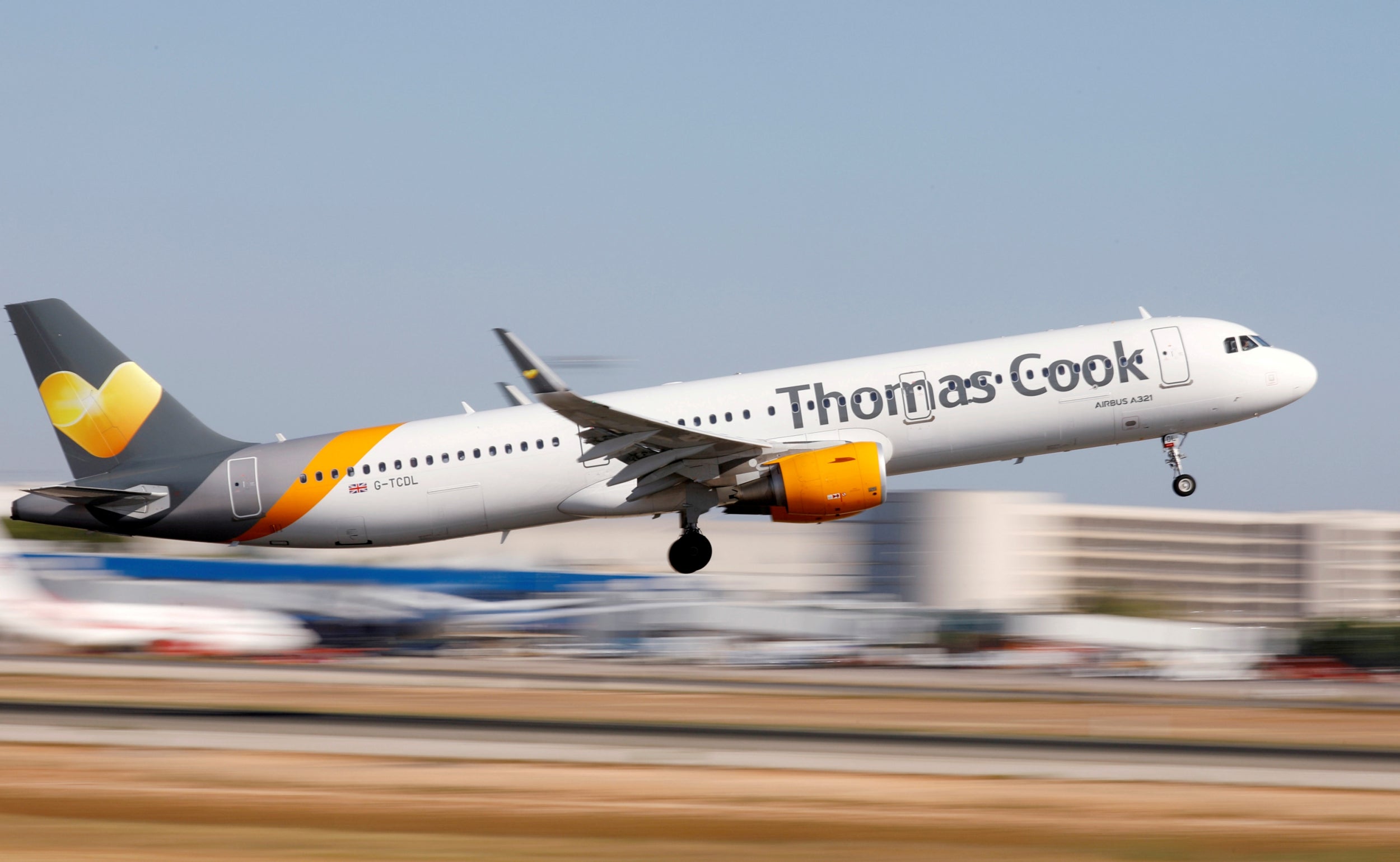Thomas Cook unveils a Twix rescue that partially splits the business. Will it fly?
The travel company's lenders and major shareholder Fosun are each putting in £450m. Fosun gets most of the tour operator, the lenders most of the airline. The company says it wants to retain its stock market listing after the dust has settled

There probably won’t be many tears shed if Thomas Cook ends up waving goodbye to the stock market at the end of the travel company’s latest rescue bid. The word “troubled” has too often been attached to reports about this business.
On the table today is a deal that will see Fosun, the Chinese conglomerate that owns Wolverhampton Wanderers, getting 75 per cent of the tour operator, 25 per cent of its airline, in return for pumping £450m of much needed new money into the debt hobbled group. It is already a major shareholder.
Lenders will put in the same amount for the 25 per cent of the travel business, 75 per cent of the airline.
This, of course, means that the remaining investors will, in the company’s words be “significantly diluted”. That’s a rather bland phrase, which translates as “all but wiped out”.
They might get a banana or two so the company can retain its stock market listing if they’re lucky.
As a solution it looks messy. But then a mess is what Thomas Cook, which has breezily issued reassurances about its liquidity more than once this year, is in. The fun mightn’t be over.
That listing would be for an unwieldy looking business that feels like a Twix bar without the sweetness: it’s two separate confections held together by a flimsy wrapper.
In theory, Thomas Cook hanging around on the stock market would make for an easier exit for lenders down the line, which is why the company is talking about wanting to secure its investors’ support for this.
But they’ll only be able to offload their new shares if the operation pulls off a rapid turnaround. And remember, their biggest bit of it is the airline.
Airlines are shaky businesses at the best of times. With a global recession and Brexit looming, these don’t qualify. You’d need a VR headset running a cloud cuckoo land programme to feel any real sense of optimism.
The shareholders, among them some noisy names, might still feel inclined to make trouble. They wouldn’t appear to have many avenues open to them. There were no parachutes issued at the start of this flight. But they might feel there’s a point of principle at stake, even if they get completely wiped out at the end of the day.
There is one big positive to emerge from the company’s statement: It says this doesn’t affect customers and trade creditors. They will be able to carry on as normal.
That will come as a big relief to them, not to mention a travel industry that has rather been on tenterhooks given the size of the business and the number of people that travel with it.
Thomas Cook too often causes it a migraine. The seeds of this crisis were sown during a previous one several years ago.
Maybe Fosun, with an eye on the Chinese market, can provide some painkillers for it and the brand. It is one that still carries some equity with holidaymakers.
Join our commenting forum
Join thought-provoking conversations, follow other Independent readers and see their replies
Comments
Bookmark popover
Removed from bookmarks